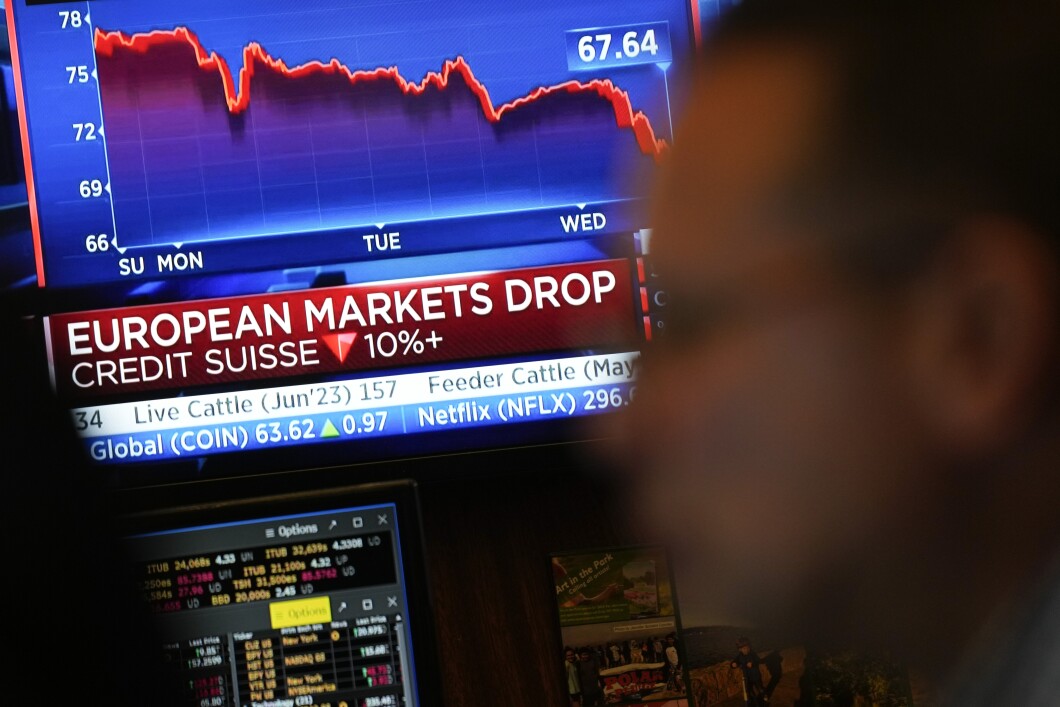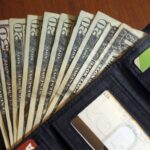The stock market crumbled Wednesday amid the dual bank crises of Credit Suisse and Silicon Valley Bank.
The Dow Jones and S&P 500 both ended in the red, concluding a stressful day for the world of finance. Major United States banks continued a downturn; shares of Wells Fargo fell 3.2%, JPMorgan Chase stock dropped 4.7%, the Dow fell 0.87%, and the S&P 500 fell about 0.7%, according to CNN.
CREDIT SUISSE BORROWS OVER $50B FROM SWISS NATIONAL BANK AFTER SHARES CRASH BY NEARLY ONE-THIRD
Investor fears resulting from SVB’s failure contributed to panic surrounding Credit Suisse, whose stocks plummeted by 30% on Wednesday after its biggest shareholder announced that it wasn’t going to give it any more money. By day’s end, Credit Suisse had to borrow $53.7 billion from the Swiss National Bank, just hours after it offered to help.

“Credit Suisse meets the capital and liquidity requirements imposed on systemically important banks. If necessary, the SNB will provide CS with liquidity,” the joint statement from the Swiss Financial Market Supervisory Authority and the Swiss National Bank said.
Wednesday saw the worst day for the bank, which has faced a crisis in recent years due to a number of scandals. The immediate catalyst for Wednesday’s debacle was a televised interview with the head of the bank’s biggest shareholder, Ammar al Khudairy, chairman of the Saudi National Bank, according to the New York Times. In the interview, he announced that the bank would not give Credit Suisse any more money, resulting in panic from investors.
The consequences of Wednesday’s Credit Suisse plummet threaten to have global consequences. The bank is estimated to hold approximately $573 billion in assets.
“[Credit Suisse] is much more globally interconnected, with multiple subsidiaries outside Switzerland including in the US,” Andrew Kenningham, chief Europe economist at Capital Economics, told CNN. “Credit Suisse is not just a Swiss problem but a global one.”
Another bank that was hit hard was First Republic Bank, whose rate was cut to junk status by Standard and Poor’s, from A- to BB+, amid wider fears resulting from the SVB collapse. The result was a cratering of its stocks; shares fell by 15% within an hour of trading opening.
Also alarming was the Chicago Board Options Exchange Volatility Index, also known as the “fear index,” going up by nearly 14% during the morning.
Despite the bad showing in the stock market, other analysts urged against panic, such as former Treasury Secretary Larry Summers.
CLICK HERE FOR MORE FROM THE WASHINGTON EXAMINER
“I don’t think this is a time for panic or alarm,” he told CNN. “This is not 2008, where people needed to be worried about where they could get their money … It absolutely is not that.”
“Americans’ money is safe,” he added.







